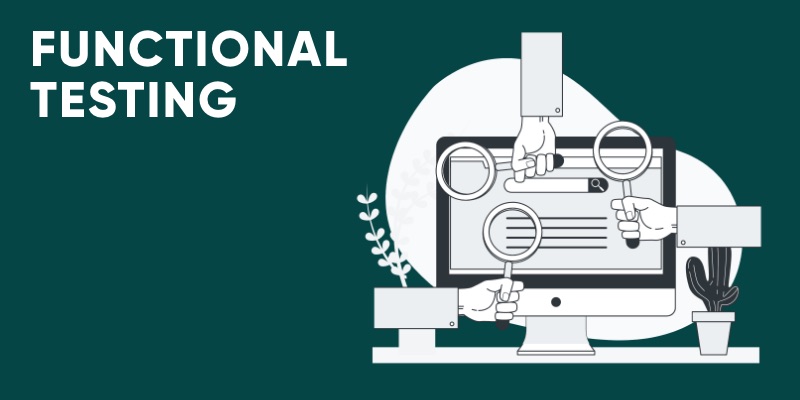In 2025, software quality assurance is more critical than ever, especially with the proliferation of mobile apps, Android apps, and iOS apps across the U.S. market. Companies are increasingly relying on automated testing frameworks to ensure their applications are secure, fast, and bug-free. Two of the most commonly used approaches are Unit Testing and Functional Testing.
Understanding the differences, advantages, and best practices for both types of testing is crucial for developers, QA engineers, and businesses aiming to deliver high-quality, user-friendly software. With AI-powered testing tools, automated CI/CD pipelines, and mobile-first development strategies, 2025 demands a strategic approach to testing for web, Android, and iOS apps.
What is Unit Testing?
Unit Testing is a software testing method where individual components or modules of an application are tested independently to ensure they function as expected. Typically performed by developers during the coding phase, unit testing focuses on isolated pieces of code, such as functions, methods, or classes.
Key Features of Unit Testing:
Verifies individual code components
Ensures early bug detection in the development cycle
Supports Test-Driven Development (TDD)
Often automated using frameworks like JUnit, NUnit, PyTest, or XCTest
Critical for Android and iOS app development
Unit tests are fast to execute and highly reliable, making them essential for continuous integration (CI) and continuous delivery (CD) pipelines in modern software development.
What is Functional Testing?
Functional Testing focuses on evaluating the application’s behavior against defined functional requirements. Unlike unit testing, functional testing is end-to-end, ensuring that the application works as expected from a user’s perspective.
Key Features of Functional Testing:
Validates user workflows and app features
Ensures mobile apps, web apps, or desktop apps function correctly
Can be automated with tools like Selenium, Appium, or TestComplete
Covers UI interactions, APIs, integrations, and system responses
Includes regression testing for updates or new features
Functional testing helps companies deliver bug-free apps that provide a seamless experience for end users, crucial in B2C mobile app markets in the USA.
Unit Testing vs Functional Testing: Key Differences
| Aspect | Unit Testing | Functional Testing |
|---|---|---|
| Purpose | Tests individual code modules | Tests overall system functionality |
| Performed by | Developers | QA engineers or testers |
| Focus | Code correctness | User experience & requirements |
| Tools | JUnit, NUnit, PyTest, XCTest | Selenium, Appium, TestComplete |
| Automation | Highly automated | Can be automated or manual |
| Execution Speed | Fast | Slower due to end-to-end scope |
| Scope | Narrow (specific units) | Broad (entire application) |
In 2025, combining both unit and functional testing ensures high-quality, reliable, and scalable applications for the competitive U.S. software market.
Why Unit & Functional Testing Are Critical for Mobile Apps in 2025
1. Mobile-First Development
With billions of Android and iOS users in the USA, app quality directly impacts retention, ratings, and revenue. Testing ensures smooth performance on all devices and OS versions.
2. Faster Release Cycles
Automated testing allows companies to deploy updates quickly without introducing bugs — essential in Agile and DevOps environments.
3. AI-Powered Testing
Modern AI QA tools analyze test results, detect anomalies, and even generate new test cases, reducing human effort and increasing accuracy.
4. Compliance & Security
Testing helps meet regulatory requirements in healthcare, finance, and e-commerce, ensuring apps comply with HIPAA, PCI-DSS, and GDPR regulations in 2025.
5. Cost Efficiency
Early bug detection via unit testing avoids expensive post-release fixes, improving ROI for U.S.-based businesses.
Best Practices for Unit Testing in 2025
Write testable code with clear modules
Maintain high test coverage (aim for 80–90%)
Use mocking frameworks to simulate dependencies
Integrate with CI/CD pipelines for automated execution
Continuously update tests for new features and refactored code
Best Practices for Functional Testing in 2025
Design test cases based on user requirements
Include cross-platform testing for Android, iOS, and web apps
Use AI-assisted automation for repetitive workflows
Perform regression testing after every update
Track and prioritize defects based on impact on user experience
Integration of Unit & Functional Testing for Maximum Quality
For U.S.-based tech companies and startups, combining unit and functional testing in a comprehensive QA strategy is crucial. Modern approaches include:
Continuous testing pipelines in DevOps
Automated regression suites for mobile apps
Performance and security testing integrated with functional workflows
AI-powered predictive testing to anticipate defects
This ensures faster time-to-market, higher app reliability, and improved customer satisfaction.
Future of Testing in 2025: AI, Automation & Mobile Apps
The future of software testing in 2025 includes:
AI-driven test case generation
Self-healing automation frameworks
Mobile device virtualization for cross-platform testing
Behavior-driven development (BDD) integrated with AI
Cloud-based test environments for global scalability
Businesses that adopt AI-enhanced testing strategies for Android and iOS apps will have a competitive edge in the U.S. market.
Why Choose Echo Innovate IT for QA & Testing Services
Echo Innovate IT is a top QA and software testing company in the USA, specializing in unit testing, functional testing, mobile app QA, and AI-powered test automation.
Our Expertise Includes:
Android & iOS app testing
Web & desktop application QA
Automation using Selenium, Appium, JUnit, and PyTest
AI-driven test strategy & predictive analytics
Full integration with CI/CD pipelines
We ensure your applications are bug-free, compliant, and highly optimized for U.S. users in 2025 and beyond.
As the title suggests, it is not only about choosing one between Unit testing and Functional testing for software development, the blog will cover much more. As a matter of fact, you will see in the blog that both software testing types have their own importance in offshore software development, and have their own advantages as well as limitations. However, there are different contrary opinions about both the functional testing types. Thus here we have compared Unit Testing Vs Functional Testing.
To put it another way, the ultimate aim of any software testing is to provide a quality product. Another key point of the foundation of the testing process is Unit and Functional testing. Generally speaking, the major difference between the two software testing types is:
- At the time of the development cycle, the developer performs the Unit testing, and
- The tester performs the Functional testing at the level of system testing in software development
With this in mind, you will get to know several such differences through this blog. With this in mind, the blog post aims to make you understand the different aspects of both software testing types. Moreover, this blog post will cover the parameters like the objectives of both types of testing, benefits of each software testing types, differences, and other valuable information. So, stay tuned!
What Is Unit Testing?

What Is The Objective Of Unit Testing?
Let’s see the prime objective of Unit testing:
- It tests the units of code in isolation
- It verifies if the code is correct
- It tests each function as well as procedure
- It detects bugs earlier and fixes them in the development of software cycle simultaneously saving cost
- It helps in understanding the code-base by the developers and allows them to quickly make changes
- It also assists in code reuse
Benefits Of Unit Testing
- Unit testing enables mobile app developers to know about the functionality provided by a unit. Additionally, explain to you the way of using it for gaining a basic understanding of the unit API
- Unit testing enables the developer to refine code and ensure the working of the module is appropriate
- Unit testing allows testing of the project’s parts without relying on others for the purpose of completion
What Is Functional Testing?

Functional testing is a process of software testing that substantiates the software system in opposition to functional specifications. Testing every functionality of software application is the purpose of functional testing which is done by providing appropriate input and output verification against the functional specifications. In simple words, functional testing is a type of testing in which the system is tested in opposition to the functional requirements or specifications.
What is the Objective of Functional Testing?
- It detects the defects that might be missed by programmers while developing software
- It helps in gaining confidence and delivers information regarding the level of quality
- It ensures the outcome that meets the business and the user’s expectations
Benefits of Functional Testing
- Functional testing is very essential for the evaluation of performance and the functionality of a software application before delivering it to the client
- Considering the user’s perspective enables the software development team to build test scenarios representing the real-world use scenarios
- Enabling the team to meet all the requirements/demands of the user and client both
- This types testing helps in improving the actual system usage
- The quality of the software product is enhanced with the use of Functional testing
FAQs
What is unit testing?
Unit testing verifies individual components of an application (e.g. functions, methods, classes) in complete isolation—typically using mocks/stubs. It’s a white-box method conducted by developers during early development. It’s fast, repeatable, and excels at catching logic bugs and supporting safe refactoring.
What is functional testing?
Functional testing assesses whether an application meets its specified requirements and delivers expected behavior from the user’s perspective. It tests complete workflows and system features in realistic environments, often combining manual and automated approaches. It’s black‑box testing, commonly done by QA teams later in the development lifecycle.
What are the main differences?
| Area | Unit Testing | Functional Testing |
|---|---|---|
| Scope | Individual code units | End-to-end features & user workflows |
| Technique | White-box (knows internal logic) | Black-box (focuses on input/output) |
| When used | Early in development, by developers | Post-integration, by QA or testers |
| Speed & Volume | Very fast, many tests | Slower, fewer tests |
| Dependencies | Isolated via mocks/stubs | Uses real components and third-party services techforhire.dev+5Katalon+5Techvify+5Ronwell Digitalpractitest.comTechvifySimform – Product Engineering Company+4Enozom+4Wikipedia+4 |
| Automation style | Always automated | Manual or automated (e.g. Selenium, Cypress) |
How do they complement each other?
Unit tests catch low-level bugs early and support clean code maintenance, while functional tests validate that all integrated parts work correctly from the user’s perspective. Together, they form a balanced testing pyramid: many fast unit tests at the base, fewer functional/regression tests toward the top.



